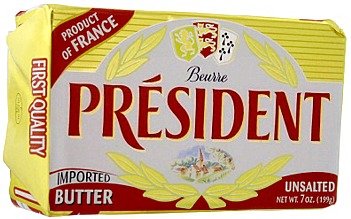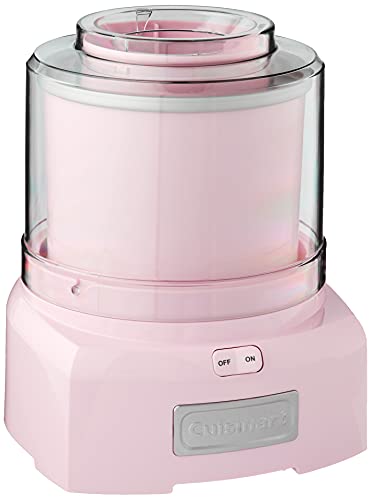



Butter is a beloved and versatile ingredient in many kitchens around the world. Whether you spread it on toast, use it in baking, or cook with it, butter adds flavor and richness to countless dishes. However, there is an ongoing debate about whether or not butter needs to be refrigerated.
Proper storage of butter
Traditionally, butter has been stored in a butter dish or butter bell at room temperature. This allows it to soften and become spreadable, making it easier to use in cooking and baking. However, with the advent of refrigeration, many people began keeping their butter in the fridge to prolong its shelf life.
Recent studies have shown that storing butter at room temperature does not pose a significant risk of spoilage or bacterial growth, as long as it is stored correctly. Butter should be kept in an airtight container to prevent it from absorbing odors and flavors from other foods in the kitchen. Additionally, butter should be stored away from direct sunlight and heat sources, as this can cause it to soften or melt.
The butter debate
The question of whether or not to refrigerate butter largely comes down to personal preference. Some people prefer the convenience of spreading cold butter straight from the fridge, while others enjoy the soft and creamy texture of room temperature butter.
Ultimately, the choice of whether or not to refrigerate butter depends on factors such as climate, kitchen conditions, and personal taste preferences. If you live in a hot and humid climate, or if your kitchen tends to get warm, it may be safer to store butter in the fridge to prevent it from spoiling. However, if you prefer the flavor and texture of room temperature butter, and have proper storage conditions, there is no harm in keeping it at room temperature.
In conclusion, there is no definitive answer to the question of whether butter needs to be refrigerated. It ultimately depends on individual preferences and circumstances. As long as butter is stored correctly, whether it be in the fridge or at room temperature, it will remain safe to consume.
The Importance of Refrigerating Butter
Refrigerating butter is essential to maintain its freshness and quality. While it may be tempting to leave butter at room temperature for easy spreading, it is important to understand the potential risks and negative effects it can have on your butter.
When butter is exposed to warm temperatures, it can easily spoil. The high fat content in butter makes it susceptible to bacterial growth. Refrigerating butter slows down this process and helps to prevent the growth of harmful bacteria.
Another reason to refrigerate butter is to prevent it from becoming rancid. Butter contains natural fats and oils which can turn rancid when exposed to air and warmth for extended periods. The cold temperature of the refrigerator helps to slow down the oxidation process and preserve the butter’s flavor and quality.
Additionally, refrigerating butter helps to maintain its consistency. Leaving butter at room temperature can cause it to become too soft or even melted. This can make it difficult to spread evenly on bread or other foods. Refrigeration helps to keep the butter firm and easy to use for various culinary purposes.
| Benefits of Refrigerating Butter: | Drawbacks of Not Refrigerating Butter: |
|---|---|
|
|
Overall, refrigerating butter is the best way to ensure its longevity and maintain its quality. It is recommended to store butter in an airtight container in the refrigerator to keep it fresh and safe for consumption.
Butter Alternatives That Don’t Require Refrigeration
While butter is a beloved staple in many kitchens, it can be a headache to keep it properly refrigerated, especially in warmer climates or during power outages. However, there are several butter alternatives that don’t require refrigeration and can be a convenient substitute for traditional butter. These alternatives often have a longer shelf life and can be stored at room temperature.
| Alternative | Description |
|---|---|
| Ghee | Ghee is a type of clarified butter that has been cooked longer to remove the milk solids. It can be stored in an airtight container at room temperature for up to several months. |
| Coconut Oil | Coconut oil is a popular plant-based alternative to butter and has a similar texture and flavor. It can be stored in a cool, dark place and remains solid at room temperature. |
| Olive Oil | Olive oil is a healthier alternative to butter and is commonly used in cooking and baking. It does not require refrigeration and can be stored in a cool, dark place. |
| Avocado | Mashed avocado can be used as a spread and alternative to butter. It should be consumed within a day or two and stored in the refrigerator. |
| Nut Butter | Peanut butter, almond butter, and other nut butters can be a tasty and nutritious alternative to butter. They do not require refrigeration and can be stored at room temperature. |
These butter alternatives offer a range of flavors and health benefits, making them a versatile choice for those looking for alternatives to traditional butter. It’s important to note that while these alternatives don’t require refrigeration, they may have different storage requirements and shelf lives. Always check the product packaging for specific storage instructions and guidelines.
Proper Storage of Refrigerated Butter
Refrigerating butter is the recommended method for storing it, as it helps to maintain its freshness and prevent spoilage. Here are some tips for properly storing refrigerated butter:
| Step | Description |
|---|---|
| 1 | Keep butter in its original packaging or transfer it to an airtight container. |
| 2 | Store butter in the coldest part of the refrigerator, such as the dairy compartment or the back of the main compartment. |
| 3 | Avoid storing butter near strongly flavored foods, as it can absorb odors and affect its taste. |
| 4 | Ensure the refrigerator temperature is set at or below 40°F (4°C) to keep the butter fresh. |
| 5 | Check the expiration date on the butter packaging and consume it before that date to ensure its quality. |
By properly storing refrigerated butter, you can extend its shelf life and enjoy its creamy taste and texture for a longer period of time.
Guidelines for Determining if Butter is Safe to Consume
Butter is a common ingredient used in cooking and baking, but there may be times when it is left out at room temperature for an extended period. In such cases, it is important to determine whether the butter is still safe to consume or if it needs to be discarded.
Appearance and Smell
One way to assess the safety of butter is to examine its appearance and smell. Fresh butter should have a creamy, yellow color and a pleasant, mild aroma. If the butter shows signs of discoloration, such as a gray or greenish hue, or emits a rancid or sour smell, it is likely spoiled and should not be consumed.
Texture
The texture of butter can also provide clues about its safety. Soft and spreadable butter is usually safe to consume, even if it has been left out at room temperature for a short time. However, if the butter appears oily, watery, or has a grainy texture, it may have spoiled and should be discarded.
Additionally, if the butter has developed mold or any presence of foreign objects, it is important to avoid consuming it as these are clear indications of spoilage.
Remember that butter can also absorb flavors and odors from other foods in the refrigerator, so it is best to store it in an airtight container to preserve its quality and prevent it from taking on unwanted tastes.
By following these guidelines, you can ensure that the butter you consume is safe and of good quality.
FAQ
Should butter be refrigerated?
Yes, butter should be refrigerated to keep it fresh and prevent it from going rancid. This helps to maintain its flavor and texture.
What happens if you don’t refrigerate butter?
If you don’t refrigerate butter, it can become soft and melt easily at room temperature. This can lead to spoilage and the butter may develop a rancid odor and taste.









